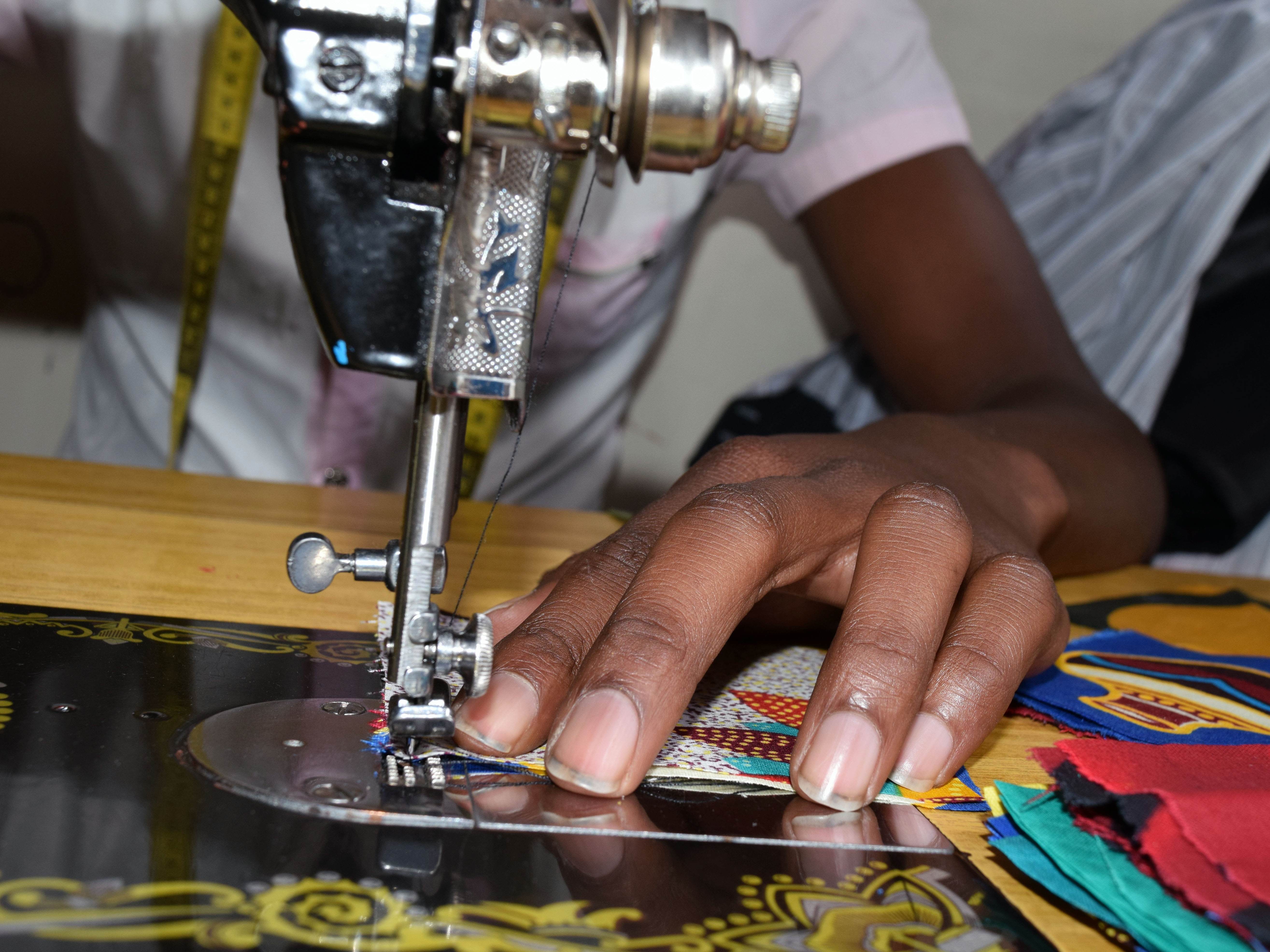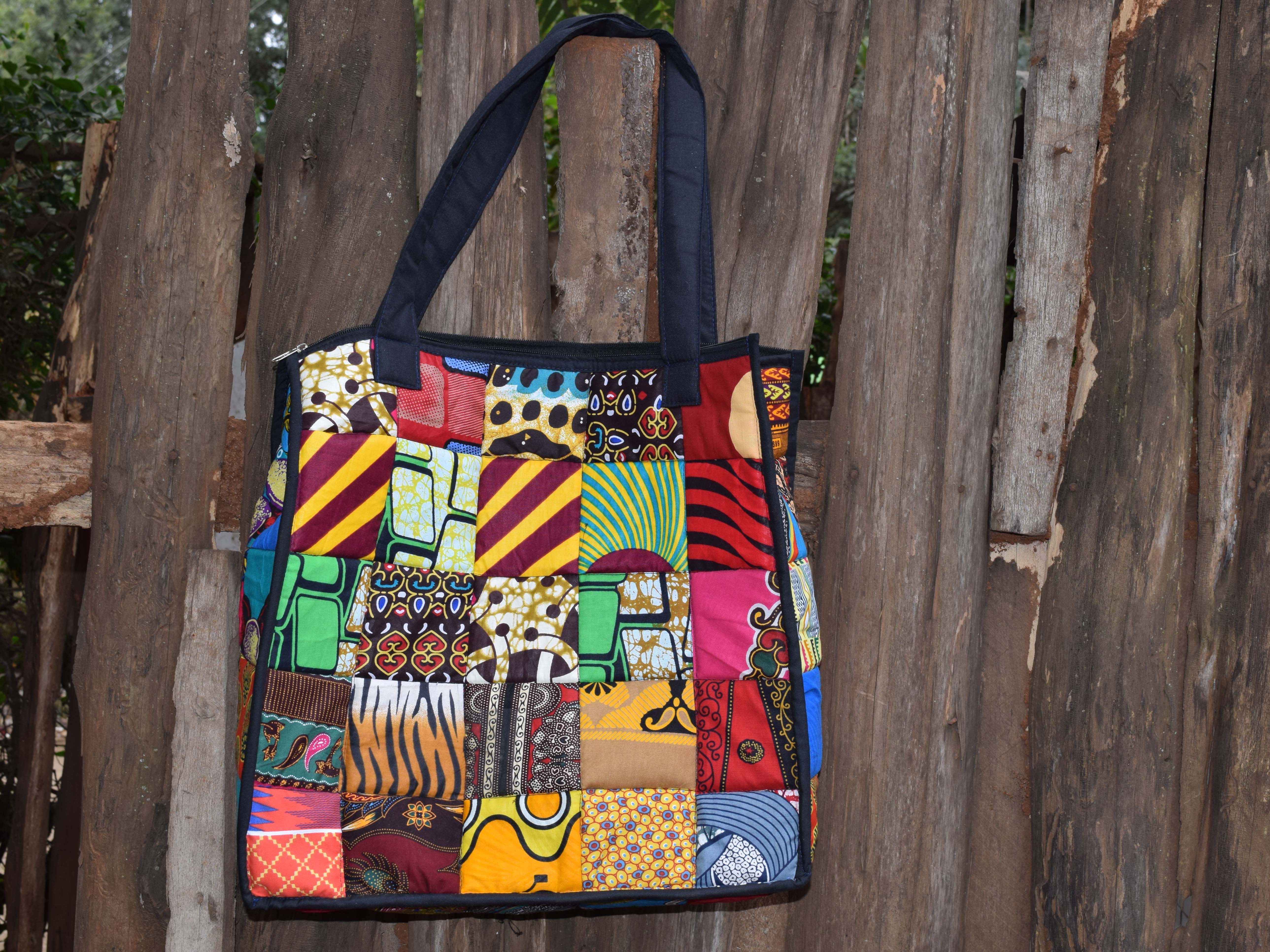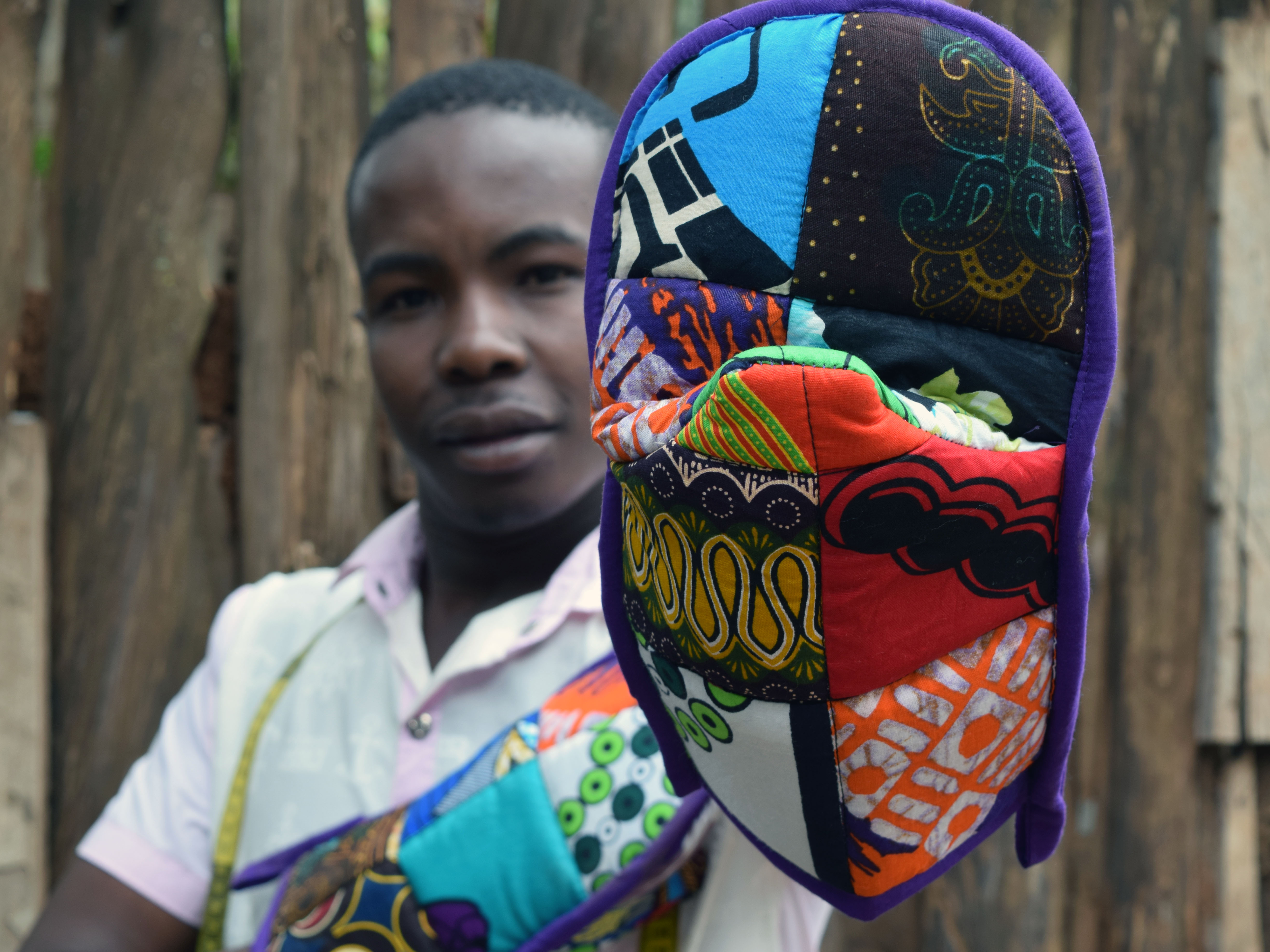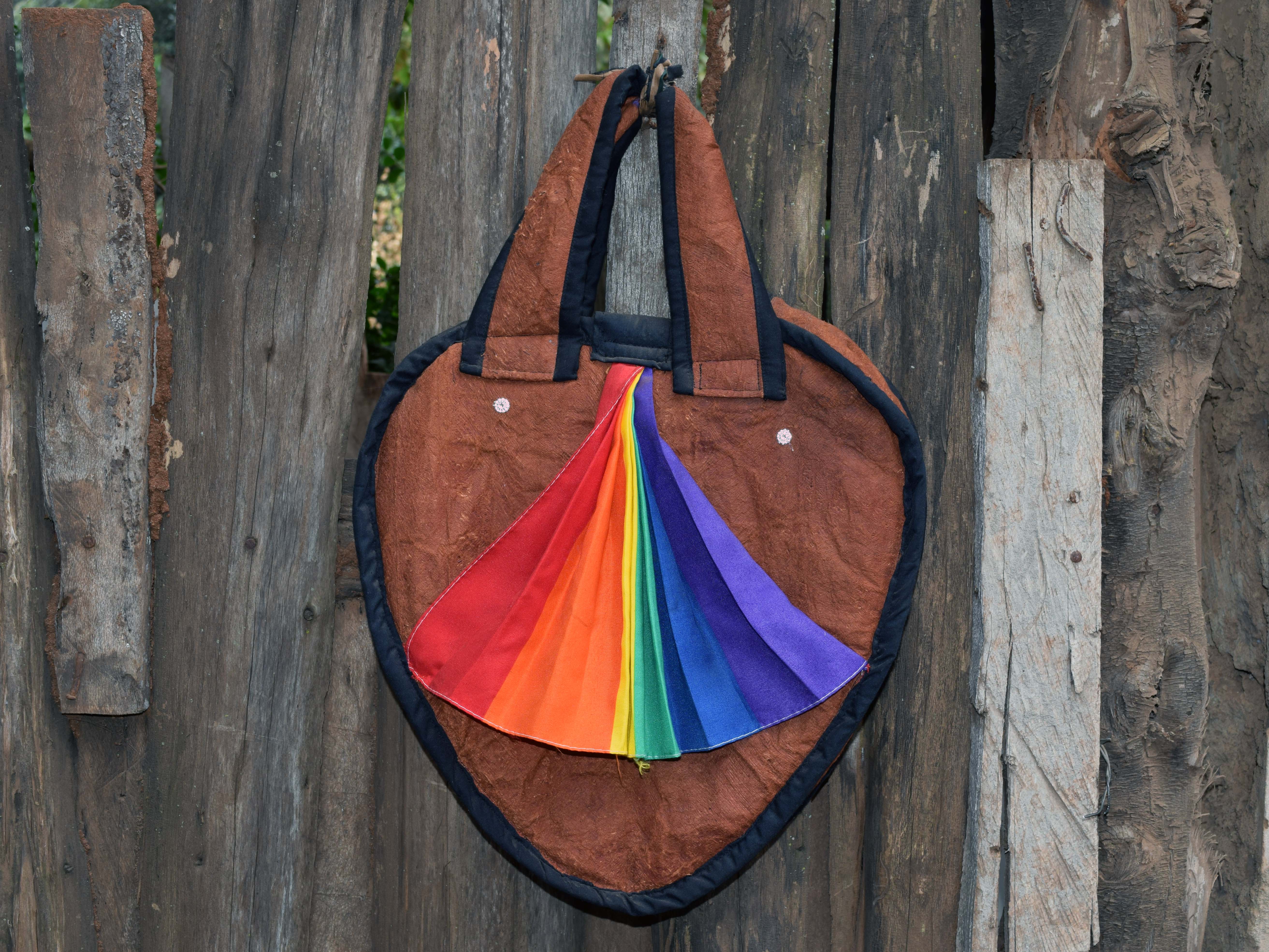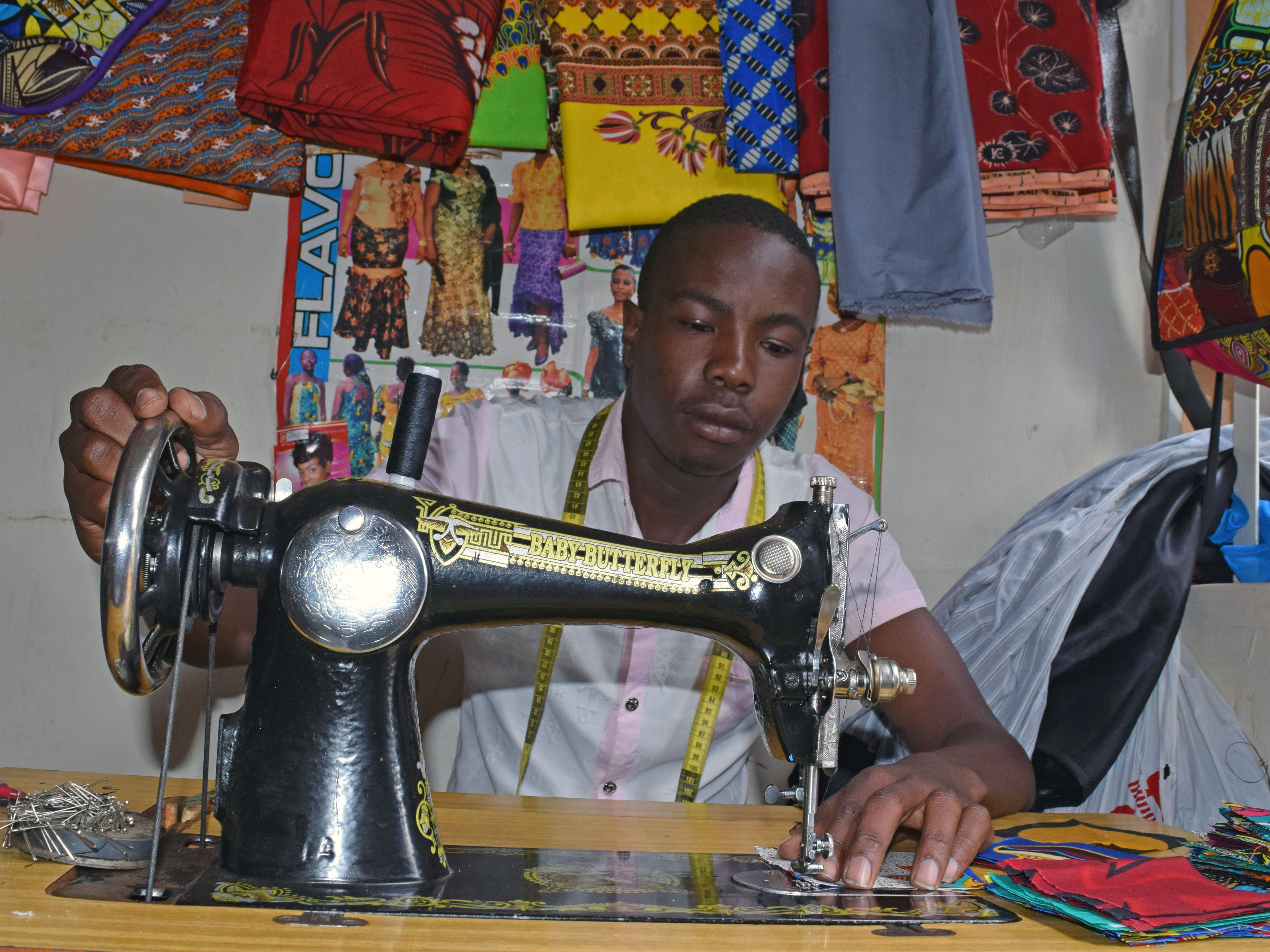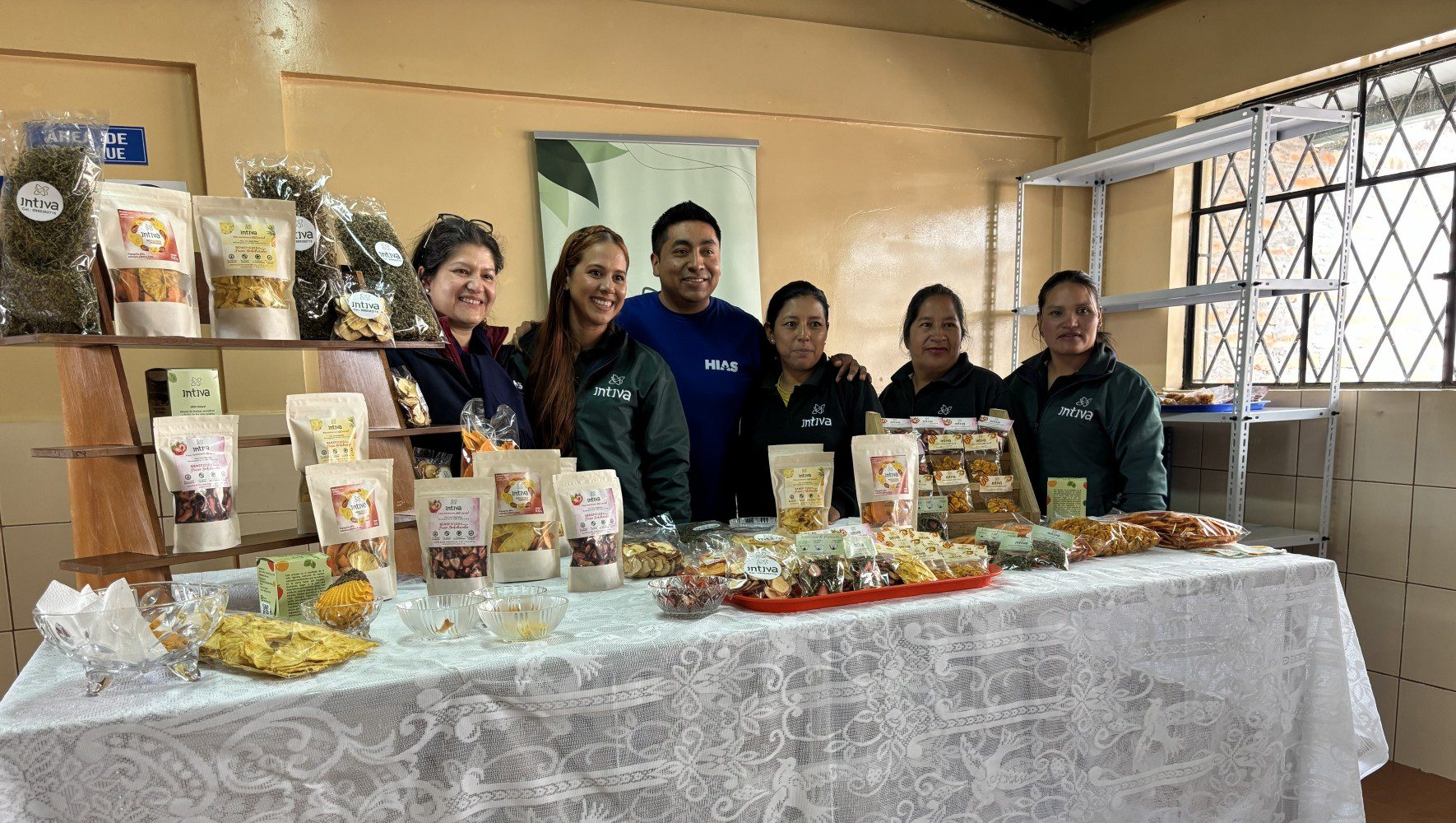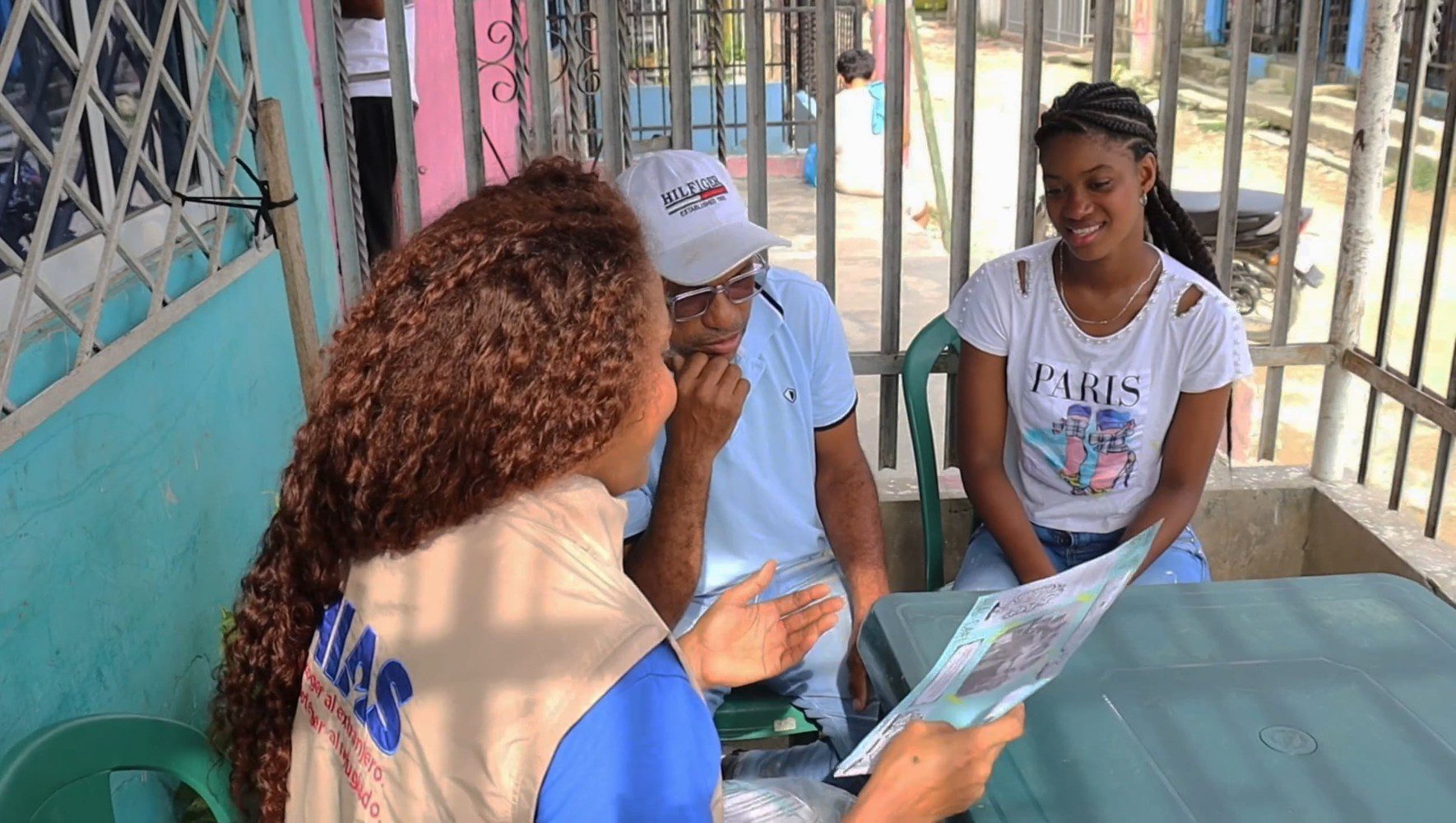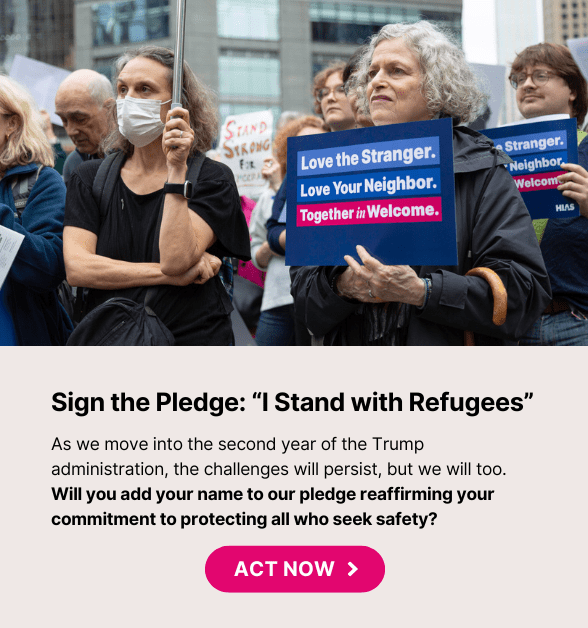The Coolest Handbags We’ve Ever Seen Were Made by This LGBT Refugee
By Rachel Nusbaum, HIAS.org
Sep 12, 2016
This story originally appeared on medium.com.
Henry had a lot of time on his hands. The unfilled time felt endless, oppressive even.
Henry is Ugandan, but fled to Kenya in 2015 to escape the persecution he faced at home because of his sexual orientation. In Nairobi he was safer and HIAS Kenya provided some financial assistance. Still, he was barely scraping by. And there was all that unfilled time to deal with.
Fortunately, Henry had a skill to fall back on. He had learned how to sew various kinds of bags by hand before leaving Uganda. In Kenya, Henry began working with a Kenyan woman, Halima*, who also made bags. This gave him a purpose, and an income.
He saved as much as he could, thinking he might start a business of his own. He bought some fabric and started sewing, making five tote bags from pieces of kitenge, a traditional East African fabric usually printed with bold, colorful designs.
They were an instant hit.
“Henry attended a workshop and was carrying one of his handmade bags. He immediately started getting inquiries on where the bags were from,” said Grace Ndirangu, resilience manager at HIAS Kenya.
“Then he started getting orders from others who saw his initial customers wearing the bags. It was really fantastic to see his business take off like that, just from word of mouth,” Ndirangu said.
Sales were strong, but Henry didn’t have the capital to buy a sewing machine, which would allow him to scale up his business. He arranged to rent one from Halima, who became his business partner.
This was an important partnership, for reasons beyond the financial. Henry, who was still in the process of getting official refugee status in Kenya, could not apply for the necessary business permits on his own. His Kenyan business partner, Halima, dealt with the licensing. The arrangement worked well.
Recently, Henry has been able to further expand his business thanks to support from HIAS in the form of a sewing machine, fabric and thread. Henry’s business is thriving, and now he has the tools to take it even further.
But Henry still remembered when he would sleep all day just to pass the time, how unbearable those endless, tedious days were. He knew there were other refugees just like him, who would benefit from learning a skill like his.
This is particularly true for transgender refugees, who are very visible and thus especially vulnerable. Transgender refugees frequently face discrimination and even violence. “To ensure their safety, they are often advised to minimize movement. This means that they cannot work or even seek employment,” said Ndirangu.
Over the past 11 months, Henry has hired 20 transgender and gay and lesbian refugees who are also HIAS Kenya clients to do piece-work, cutting the fabric he uses to make his bags.
“By working from home, they stay safe and are still able to earn a living,” Ndirangu said.
Henry and his team mostly make handbags and laptop bags. Lately, they have added backpacks as well. So far, business is good. They sell as much as 60,000 Kenyan shillings (roughly $600) worth of bags per month. They call themselves ‘Team No Sleep’ and even have a page on facebook.
The team is already international in its reach. Henry recently had an order of 30 bags from South Africa, for World Aids Day, and has customers as far away as the UK. He hopes to more than double the number of LGBT refugees he can hire in the future.
“We came up with the idea of starting Team No Sleep Foundation in 2015 due to the suffering and unemployment of Ugandan LGBTI refugees and asylum seekers,” said Henry.
“Being a refugee, sometimes it's very hard to be employed. Even our sexual orientation is a great problem, since it's an abomination to be like us. This forced us to come up with this idea which will require us to be own bosses without being discriminated against. Being unemployed was one of my challenges, but now I am my own boss.”
Henry and the rest of Team No Sleep are working to expand their production, as they continue to fight poverty among LGBTI refugees through their beautiful, handmade products.
Want to know where you can purchase these beautiful handmade products? Send a message to Team No Sleep on their Facebook page.
*Name has been changed
